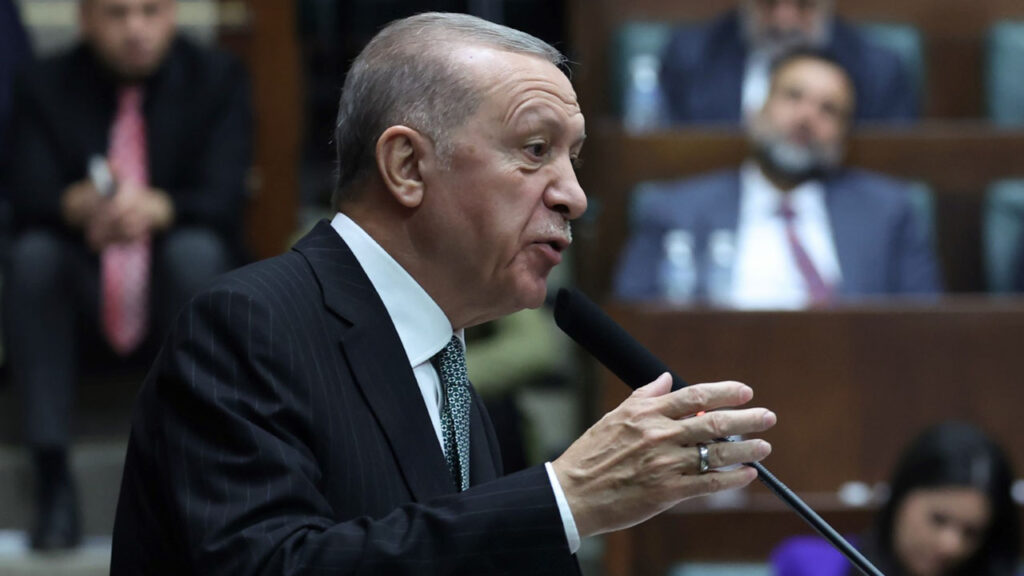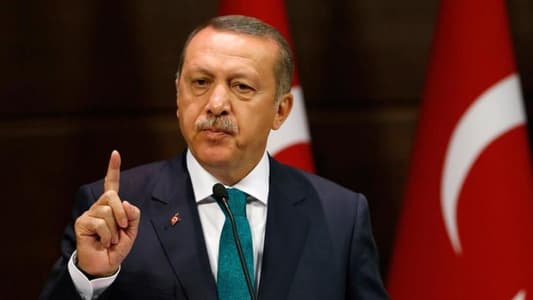ISLAMABAD: Turkey vehemently criticized a statement from the United Nations Security Council that attributed the recent turmoil on the divided island of Cyprus to the breakaway government supported by Ankara.
An altercation involving UN peacekeepers last Friday triggered a war of words, highlighting the numerous obstacles Turkey must overcome as it renews its efforts to join the European Union.

Since his challenging re-election in May, Turkish President Recep Tayyip Erdogan has prioritized the mending of ties with Western allies.
However, Turkey’s extensive list of disputes with Europe encompasses its endorsement of a breakaway government in the northern part of Cyprus, an EU member whose authority is solely acknowledged by Ankara.
These tensions erupted when UN peacekeepers attempted to physically obstruct the construction of a road by the Turkish Cypriot administration within the buffer zone that divides the Eastern Mediterranean Island.
Both sides concur that the incident resulted in injuries to four members of the UN Peacekeeping Force in Cyprus (UNFICYP).
Blaming the Turkish-backed administration, both the European Union and Washington have attributed the altercation to them.
Following a confidential meeting on the emerging crisis warning the UN Security Council issued a statement that “attacks targeting peacekeepers may constitute crimes under international law”.
The 15-member council also “called for the removal of all unauthorized constructions and the prevention of unauthorized military or civilian activities within and along the ceasefire lines”.
Turkey called the UN statement unfair.
The Turkish foreign ministry said, “The press statement issued by the United Nations Security Council… is completely divorced from the realities on the ground.”
“The notification regarding the road work was made well in advance. This being the case, the physical intervention by soldiers of the UNFICYP in the road construction work was the cause of the tension,” the Turkish statement said.
Turkey is exerting pressure on the European Union
The incident has escalated to become one of the most significant of its kind on the island in recent years.
Subsequently, Turkish Cypriot officials initiated discussions with local UN envoys and ceased activities within the disputed area.
Both the Turkish Cypriot officials and Ankara affirm that the construction of the road was both legal and crucial to connect Turkish Cypriot communities in the ethnically diverse village of Pyla with those residing in the northern region.
Turkish authorities further assert that the UN had overlooked the construction of roads linking Greek Cypriot communities in the buffer zone with the southern part of the island.
Cyprus has remained divided since Turkish forces seized control of the northern third of the island in response to a military coup backed by the ruling junta in Greece in 1974.
Since the breakdown of the final round of UN-mediated talks in 2017, efforts to reunify the island have remained at a standstill.
EU officials have tied the resumption of their own stagnant negotiations for closer ties with Turkey to a resolution of the Cyprus dispute.
Last month EU foreign policy chief Josep Borrell said, “Solving the Cyprus issue in line with the relevant United Nations resolutions will be key in this re-engagement with Turkey.”
Turkey’s Foreign Minister Hakan Fidan said today that Ankara expected Brussels “to revise their stringent opinion about membership.”
“They need to re-evaluate that,” Fidan told reporters. “We believe that Turkey’s accession to the EU is a strategic act that can further reinforce the EU’s position in the world.”










